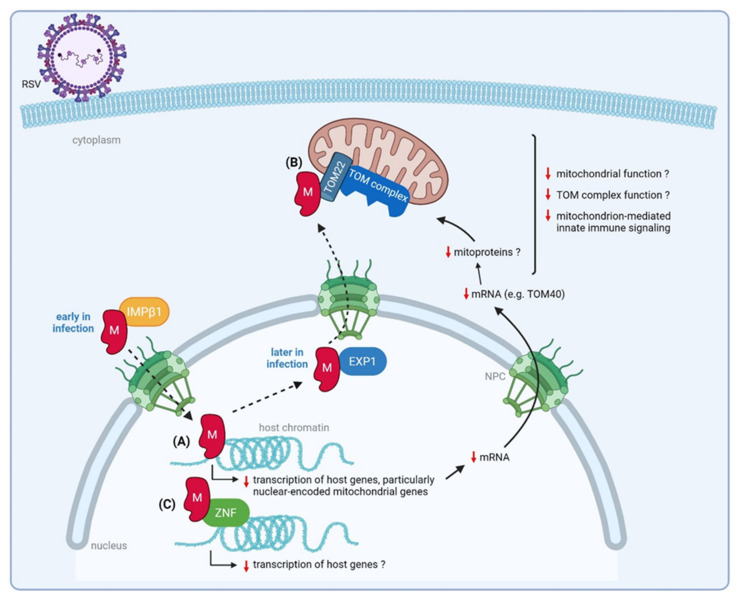Figure 6.
Proposed roles of RSV M in suppression of host innate immune responses. Early in infection, M translocates to the host nucleus. (A) Nuclear RSV M associates with host chromatin, resulting in inhibition of host gene transcription, in particular nuclear-encoded mitochondrial genes. Consequently, the function of the mitochondria and the TOM complex might be impaired, resulting in a decreased mitochondrion-mediated innate immune response. (B) RSV M directly interacts with TOM22, a subunit of the TOM complex. Since this complex has an antiviral role during RSV infection, probably through recruitment of innate immune factors to the mitochondria, the interaction of RSV M with a TOM subunit might lead to subversion of the host innate immune response, favoring virus production. (C) Nuclear RSV M interacts with ZNFs (as shown for ZNF502), possibly leading to impaired transcription of host genes. NPC, nuclear pore complex; IMPβ1, importin β1; EXP1, exportin 1; ZNF, Zinc-finger proteins. Figure created with BioRender software (BioRender.com (accessed on 13 January 2022)).

